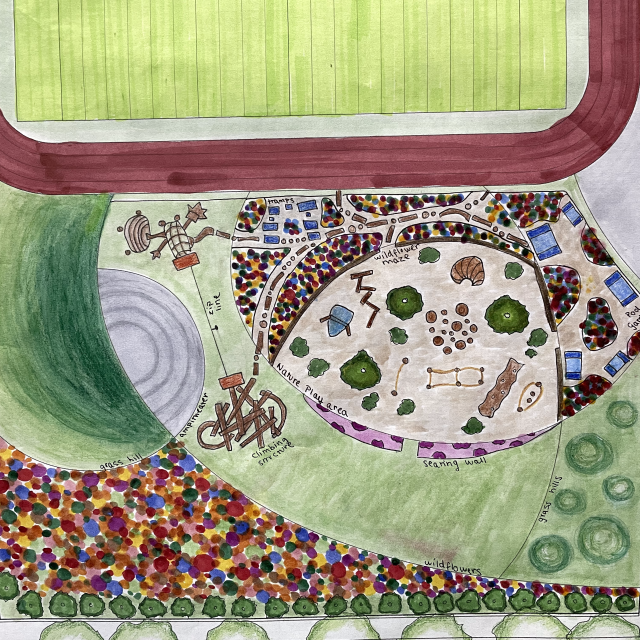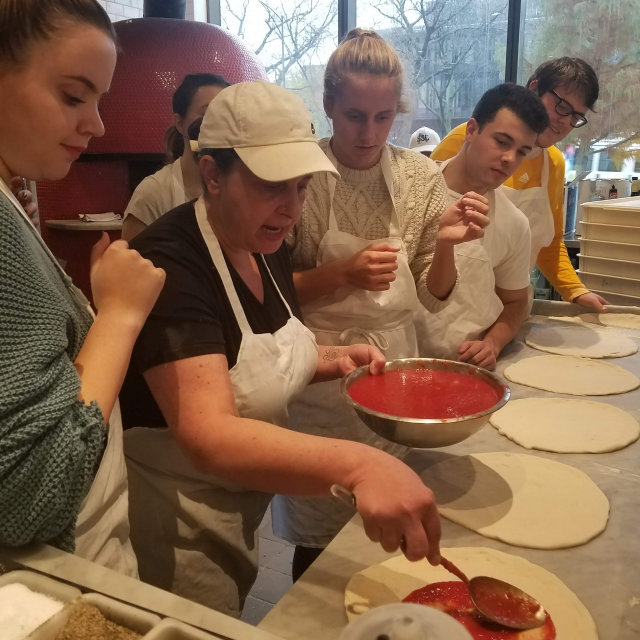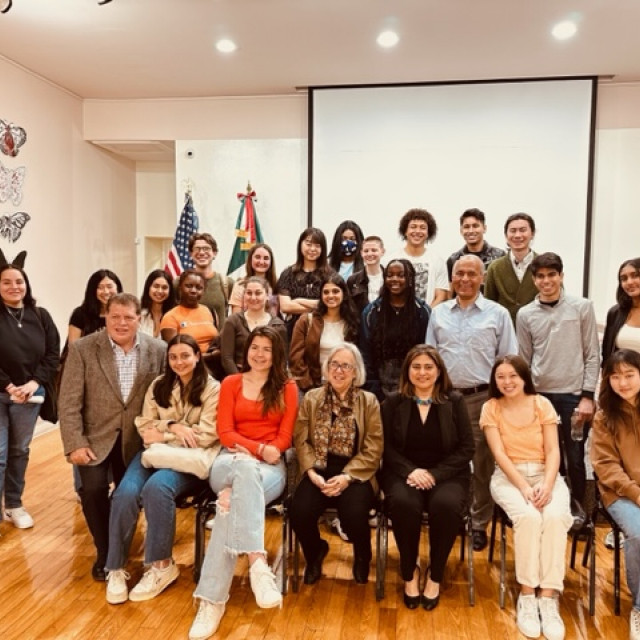Instructors
Learning with Chicago
Chicago offers instructors a wealth of opportunities for enhancing, illustrating, or deepening course content through hands-on experiences. Read on for examples of how other instructors creatively engage the city (with Chicago Studies' help) in their classes.
- Need help brainstorming and planning a relevant Chicago experience for your class? - Consult with us.
- "But experiences are...expensive!" - Apply for a (quick turnaround) micro-grant.
- "I want to be sure to respect my visitors' time." Ask us to pay them an honorarium on your behalf.
- Not sure how to get there and back on your budget (or in your class' timeframe)? We've got you covered.
- No GEMS card for those tickets or supplies? No worries.
- "Normal" experiences won't work? Let's get creative.
Adding Pizza(zz) to Italian Classes
Students in introductory Italian classes get to practice their language skills, meet with Italian immigrants, and learn more about a neighboring business during pizza-making classes at Nella Pizza e Pasta, located on the ground floor of Campus North Residence Hall on East 55th Street. A Chicago Studies Course Connections micro-grant pays a small fee per student (covering ingredients and the restaurant staff's time); since Nella is within walking distance, there's no other costs associated with the experience. The enrichment activity is held outside class time, and has become so popular that the various intro sections' instructors have to hold a lottery to decide who gets to participate.
Besides their in-class learning outcomes, students walk away knowing more about a local restaurant and the family that owns it, which motivates them to return with their friends.
Where Rights are Won
Students in Susan Gzesh's CHST cross-listed human rights classes don't just study theory - they learn the practice of human rights from local activists. Week to week, guest speakers working at a range of Chicago organizations host the students (at Casa Michoacán in Pilsen, right), drop into the classroom, or Zoom in from around the world to illuminate real-world issues. An Experiential Learning micro-grant provides honoraria to each invited guest (making it easier to recruit them and increasing their regard for the University, according to Susan). It also provides local transportation for one-two field trips per class, and even allows the students to compensate representatives from organizations they want to study more deeply, hiring them as "research advisors" to inform and advise their final, topical group projects.
As Susan remarked, "my students tell me that the guests make the intellectual content of the course 'come alive.' Hopefully many will be able to follow-up the field trips with visits of their own."
Studying Chicago's Audioscape
Pranathi Diwakar wanted students in her CHST cross-listed "Music, Society, and Politics" class to "experience a visceral sense of the ways that music and city life are deeply intertwined." As part of her teaching strategy, she assigned her students to purchase tickets to and then attend musical performances of their choosing at venues around the city. Students' expenses (up to a per student limit) were reimbursed by Chicago Studies out of a portion of the experiential learning micro-grant Pranathi was awarded for the class; by attending concerts together, students could pool their resources to cover not only admission, but also transportation to and from the events.
An ethnographer and qualitative sociologist who herself has researched Chicago's music scene, Pranathi's preparation for students' explorations included methods training that they practiced at the concerts. Students' responses included not only theoretical reflections, but also annotated playlists that were shared with their peers.

Learning by Design
Luke Joyner's "Children and Architecture" studio class was built around the idea that meaningful design requires the input of those who will use it...and that even children can contribute ideas to shape their environment for the better. So in its first offering (Fall 2021), his students partnered with a sixth grade classroom at a CPS school in nearby Englewood to co-design and then build prototypes of new playground equipment for an under-used patch of land on their campus.
With support from Chicago Studies, including an experiential learning micro-grant that paid for construction materials, contractors, and transportation, Luke's students did more than make prototypes. Together with their middle school collaborators, they submitted their ideas to a city-wide competition...and won a $1.5 MILLION City Works grant to build the playground they'd imagined for Claremont Academy.


